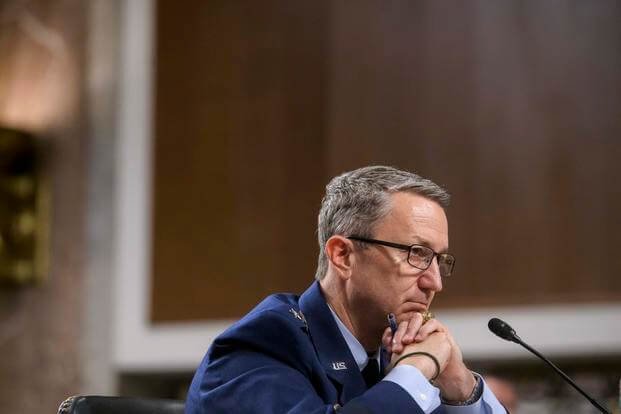
The commander of the Army‘s bomb disposal school was quietly fired over the summer, according to the service. Lt. Col. David Alexander, who led the 73rd Ordnance Battalion based in Florida, was dismissed from his position on July 11, though this is the first time the news has been publicized.
Alexander was relieved “due to a loss of trust and confidence in his leadership ability,” Onyx Taylor-Catterson, a spokesperson for the service, confirmed in a statement to Military.com. The decision to remove him was made after an internal investigation.
The 73rd Ordnance Battalion, headquartered at Eglin Air Force Base in the western Florida panhandle, plays a critical role in training and preparing soldiers in explosive ordnance disposal, or EOD, a high-stakes field where precision and leadership are paramount. EOD was among the highest-profile elements of the Army during the wars in Iraq and Afghanistan, where makeshift bombs were the weapon of choice among insurgents.
Read Next: Prep Courses, Policy Tweaks Largely Drove the Military’s Recruiting Success in 2024
It’s unclear what led to Alexander’s termination. He was not available for comment, and it was unclear Friday whether he has an attorney. “Loss of trust and confidence” is the go-to line for the Army — and other military services — whenever a commander is fired, as the service routinely conceals insubordination of its senior officers.
The Army’s standard phrase could imply a variety of reasons for his termination, including possible abuse of subordinates, sexual harassment or misuse of authority. No military criminal charges have been filed against Alexander, and his name does not appear on the Army’s public-facing court docket.
Commanders of military training schools, such as Alexander, hold a unique responsibility to integrate new recruits into military service. Traditionally, they’re expected to embody the highest standards of their respective branches, guiding trainees who are just beginning their military careers. A leader’s behavior can have a lasting impact on recruits, potentially shaping their perceptions of military values and discipline as they join their future units.
Alexander’s dismissal is another example of the service in recent months canning officials with direct influence over trainees. In June, Lt. Col. Michael Kelvington was removed from his position overseeing Ohio State University’s Reserve Officers’ Training Corps, or ROTC, amid allegations of sexual abuse and inappropriate relationships with cadets.
In June, Col. William Wright, the director of the U.S. Military Academy at West Point‘s geospatial information science program, was arraigned on nine allegations relating to sexual misconduct, drinking alcohol with cadets and violating no-contact orders. His trial is set for Oct. 21.
In September, Col. Anthony Bianchi, the U.S. Army Garrison West Point’s garrison commander, was dismissed amid allegations of alcohol abuse and drunk driving, though he was later found not guilty of the alcohol charges in civilian court.
Despite his removal from command, Alexander remains in the Army, although his new assignment is unclear. Lt. Col. Chad Huggins has since taken over as the new commander of the 73rd Ordnance Battalion.
Related: ‘A Betrayal’: How a Decorated Army Officer Fell from Grace in a University ROTC Sex Scandal



















